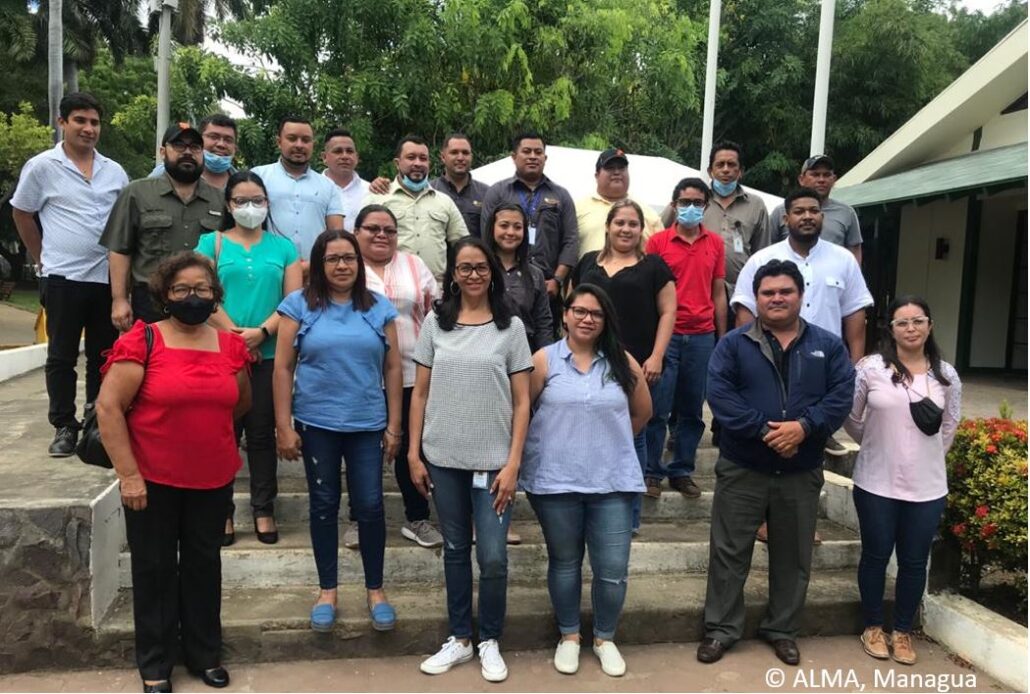Improving solid waste management in Nicaragua, Honduras and Bolivia
Overview
In 2021, Skat Foundation and partners successfully implemented 3 editions of the practical-theoretical course on Sustainable Waste Management. The participatory trainings comprised 3 synchronous online modules, with practical exercises in between components. With a total duration of 3 months each, the courses enabled participants to enhance their skills and knowledge on waste management practices.
Partners
- Central American Association for the Economy, Health and Environment (ACEPESA), Costa Rica
- HABITAR Foundation, Nicaragua
- Helvetas, Bolivia
- Managua Municipal Council (ALMA), Nicaragua
Participants
The courses were attended by officials of the municipal agencies for waste management and sanitation systems, as well as by professionals of the entities responsible for municipal solid waste collection, treatment, and final disposal. Participating municipalities included:
- Bolivia: Tarija, Villamontes, Villa Vaca Guzmán, San Ignacio de Velasco, El Puente, Concepción, Cuevo, Tupiza, La Paz, Sucre, Camiri, Chiquitania, Chaco Cruceño, Boyuibe, and Villazón.
- Honduras: Villanueva, Cortés, San Pedro Sula, El Progreso, Lempira, Tegucigalpa, Santa Lucía, Comayagua, and Siguatepeque.
- Nicaragua: Managua.
Main results
Overall, 44 participants completed the course and received a certificate. Out of the certified participants, 48% were women. The breakdown of the numbers is shown below.
- Bolivia: 18 certified participants (9 women, 9 men)
- Honduras: 9 certified participants (4 women, 5 men)
- Nicaragua: 17 certified participants (8 women, 9 men)
Upon training completion, each partner received a detailed report comprising the contents covered in the online sessions as well as the information generated by the participants during the practical activities. These databases provide the basis for updating and/or strengthening the waste management baseline in each of the three specific contexts.
Next steps
We will continue to support the strengthening of integrated solid waste management systems and practices in different municipalities in Bolivia, focusing on environmental education and organic waste. This will include facilitating the exchange of experiences between different networks of young environmentalists in Bolivia, Colombia and Central America.
Funding
These projects are supported by the International Programme co-funding of the Swiss Agency for Development and Cooperation.




